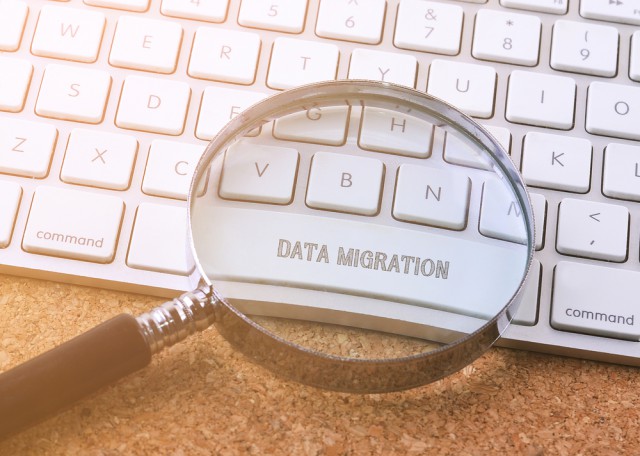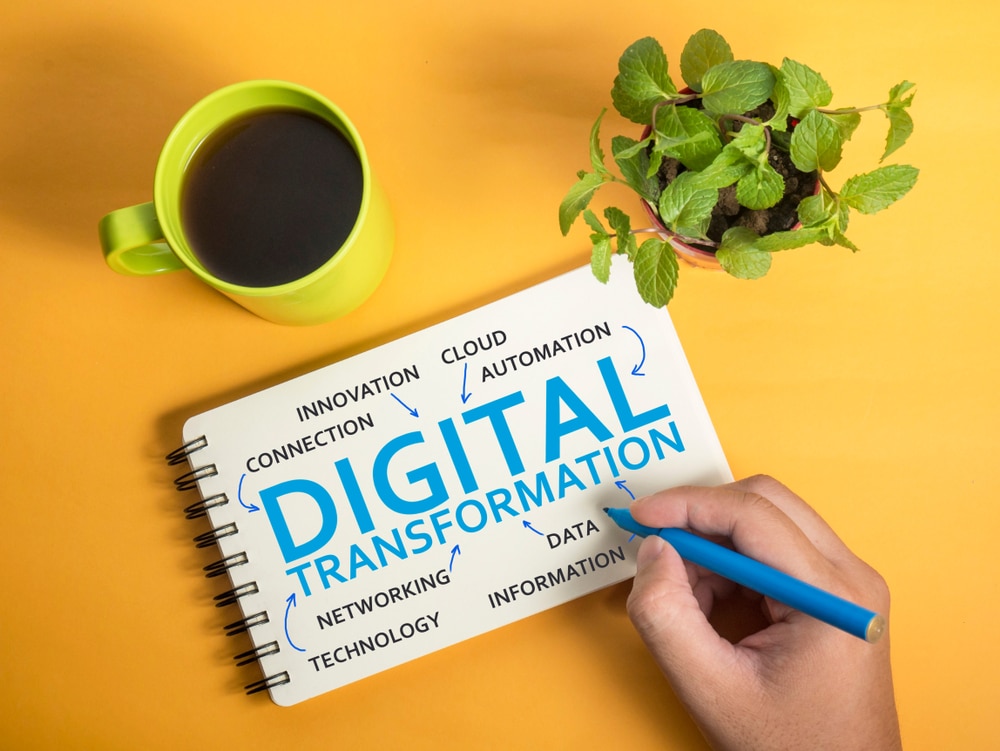
Building a 'sticky' app, and why it matters
It is instantly clear to anyone who casts an inquiring eye over the digital landscape that mobile apps are the single most ascendant platform, and therefore afford businesses and content producers with the greatest opportunity. Anyone looking to establish a full digital suite to engage users or market their product would be remiss to overlook the efficacy of their application; and yet many apps are unintuitive, tricky to use, or bloated with confusing user interfaces (UI) or too many ideas.
The benefits of a great app are well-established. When compared with traditional customer management and communications platforms such as email, an application offers a far more engaged and purposeful experience -- the so-called 'captive audience' effect. Equally, the ability to maneuver away from volatile and unpredictable social media platforms, many of which increasingly require substantive investment in ongoing market campaigns to cut through to users, can be both lucrative in cost-savings and of significant brand value.

Avoiding the big bang data migration
Data migrations are by their very nature high risk initiatives and, if not planned effectively, they can create a significant headache for both the IT team and the organization. That’s because modern technology transfers are massively complex undertakings. However, data migration problems can often be traced back to confusion and disorganization surrounding the migration plan (if one is in place) and a failure to adequately prepare for the move.
Additionally, every company’s data landscape is unique. It may encompass everything from legacy systems to homegrown one-off databases, each with its own level of support. Documentation may be non-existent, institutional knowledge may be limited, and key staff may have left. This makes the task much more complex to undertake.

What does the Edge mean for IoT?
A lot has been written about the IoT revolution and how the technology has the capability to revolutionize industries, transform productivity and unlock new levels of insight. But for those intrigued by the possibilities and looking to dip their toe in the water, the potential myths of high price point, infrastructure and connectivity challenges, as well as the required skill set can be significant hurdles that seem insurmountable.
In addition, especially when it comes to the reality of industrial IoT, the cost, time and disruption that goes into a brand new facility -- the prospect of having to rip and replace new infrastructure to support IoT just isn’t a viable option for many businesses. So what’s the alternative? In this article I'll explain how edge IoT and analytics can provide a powerful mechanism for translating complex data sources into a streamlined, lower cost platform with faster return on investment and higher value. First, let's consider some of the key challenges businesses face when considering an investment in IoT.

Is detection of ransomware the key solution for small business rather mitigation?
According to Checkpoint Research, ransomware attacks have surged significantly, hitting a double-digit increase of 93 percent year-on-year. As of June 2021, the number of organizations impacted by ransomware has risen to 1,210. This exponential rise is also attributable to the migration to remote work globally. The amount paid by victims of these attacks has increased by almost 300 percent in 2020 alone
These staggering statistics paint a grim picture of the security threat that companies face. As early as July 2021, as many as 1,500 businesses world-wide have been affected by ransomware attack -- REvil. The group has reportedly used Kaseya IT software as backbone for this notorious attack. Around $70 million dollars were demanded from the affected companies to restore business data. The companies that majorly came under the radar were supermarkets, IT companies -- primarily small to medium sized, schools and kindergartens

Live video commerce: China leads the way, the US catching up fast
It’s estimated that there will be 2.14 billion global digital buyers in 2021. Naturally, every seller wants a piece of this tempting pie. The result -- e-commerce has become more and more crowded as a large chunk of traditional brick-and-mortar sellers is shifting online.
Also, in a traditional e-commerce setup, the customers are expected to visit your website, browse for products, and buy what they want. Though this is the modus operandi of any e-commerce business, there lies an important flaw underneath this string of steps -- "over-reliance on customers to visit your platform."

Is your business being targeted by cryptojackers?
Thanks in no small part to Tesla CEO Elon Musk, Bitcoin, Dogecoin and other cryptocurrencies have become much more widely known, but not necessarily understood.
Recent booms and burst bubbles have exposed how volatile, speculative and easy to manipulate those cryptocurrencies are, not to mention the environmental concerns attached to how they are mined. Nevertheless, cryptocurrency mining can be hard to resist when there is potential for massive payouts to successful miners. To try and gain an edge, miners have formed blockchain mining farms and invested in high-end computing systems.

3 business use cases for observability
Since 1955, 88 percent of Fortune 500 companies have fallen off the list or gone bankrupt, including major brands like American Motors and Detroit Steel, while others like Boeing and Campbell Soup have withstood the test of time. More telling, the average "lifespan" of a company on the list has dropped from 75 to 15 years, indicating that today, a business’ longevity is less to do with industrial decline and leadership, and more influenced by technology and trends. Digital transformation has occurred in waves, and those who have adapted and survived are often those who embraced innovation and implemented new technology to enable success. As we continue riding the current wave of digital change, next-generation platforms for observability and AIOps can help businesses keep pace.
Although many industry leaders see observability with AIOps through a technical lens, every feature and function solves a real-world problem for companies. Here are the top business use cases for observability with AIOps:

The critical role of project scoping in advance of M&A data migrations
Every migration project has one nemesis -- the unknown. No matter what data you’re migrating, surprises can send a project spiraling. Projects that run on time and on budget demand a clarity of vision that comes from comprehensive pre-migration assessments and project scoping.
Assessments are the best way to map a project and discover what was previously unknown. Effectively visualizing the source and destination environments helps you plan and understand all the different elements of a project. Who are the people required? What technologies are involved? Will you need any third-party tools? The discovery that pre-migration assessments provide helps you understand the nature of the project and how best to complete it.

Why have we failed and what do we need to do?
In watching the most recent high profile, and very costly breaches, I’ve begun to ask the question "Why have we failed and what do we need to do?" We’ve failed. As I enter the twilight of my career in our industry, we haven’t gotten better -- breaches are more expensive, they’re more difficult to remediate, the economic destruction is real, and people get hurt or die as a result of cybersecurity breaches. Why? Where did we go wrong, and what do we need to do to fix it?
The first question I asked myself is, "What do we do well?" We’re an industry of incredibly talented people. Over the years, we’ve learned to collaborate and share information (which, we didn’t start off doing), and we have no shortage of tools. Our tool chest is loaded to the gills with capability. We also have boards and executives who are more cyber savvy than ever before. When I started in our industry over two decades ago, I couldn’t explain to a board what cybersecurity was with a PowerPoint presentation. Now, they’re all concerned about the issue and paying attention.

Unlocking digital transformation with Robotic Process Automation (RPA)
The term "digital transformation" has become synonymous with a company’s endeavor to modernize. It allows organizations to transform their operating models to improve customer experience, increase successful outcomes, and gain a competitive advantage in the marketplace. While many technologies, processes, and cultural adjustments are needed to drive digital transformation successfully, "automation" is a critical aspect of the entire process.
Robotic Process Automation (RPA), with its capability to digitalize several operations and processes, has a great potential to accelerate digital transformation for an enterprise.

The rise of home tech security
Technological advances have a significant trickle-down effect, intended to improve all aspects of modern living. This is especially true in the home, where the "smart" revolution has filled our homes with all sorts of automated and interconnected devices.
It’s estimated that the home automation market will hit 350 million users by 2023. This includes security measures as well, and the past few years have shown a proliferation of new and improved devices to keep our homes safe. We’ll take a look at some of these security solutions and how home-owners can harness new tech to protect themselves and their families.

6 reasons why your website is slow and how to fix it
In 2021, site speed optimization is a must if you want to build a successful online business. The reason is that site speed affects SEO, user experience, bounce rates, and -- most importantly -- conversion rates.
However, a recent study suggests that the average time it takes to fully load a webpage is 10.3 seconds on desktop and 27.3 seconds on mobile. In other words, website owners are still struggling to optimize their sites’ pages. And in the following paragraphs, we will look at some of the most common issues that can slow a website down. Additionally, we’ll share solutions that every site owner can benefit from.

Enabling an intelligent planet through IoT automation
Automation made possible by the Internet of Things (IoT) provides the framework and infrastructure necessary for the creation of an intelligent planet. Technologies such as smart sensors, artificial intelligence (AI), machine learning (ML) and edge computing are enabling advances in many diverse industries and areas of modern society. These technologies and the systems they produce promise to transform the way we live and work as the 21st century progresses.
We are going to look at what constitutes an intelligent planet, where the world stands in its development and how the technology that drives and fuels an intelligent planet will evolve in the near future.

Why data analytics will be vital in the hybrid working arena
A quick look at the Forbes Global 2000 will tell you that not many businesses stand the test of time. To endure throughout the ages, organizations must regularly adapt and reinvent themselves to keep up with new developments. Never has this received wisdom been more apt than throughout the COVID-19 pandemic, where many businesses have had to adjust their offerings and operations to stay relevant in the remote climate.
In the aftermath of the pandemic, this sentiment will continue to be vital. Indeed, as vaccination rates climb, and nations worldwide begin to ease their lockdowns and restrictions, many governments will be scrapping their 'work from home' guidelines. That said, this doesn’t mean companies plan to return to their old ways. As such, decision-makers will require a plan of action to make the decisions necessary to keep up with new trends.

How to send large files by email
Businesses aspire to get past survival mode and shift into growth and innovation. So, it’s important to work through some of the process bottlenecks that happen on a regular basis to free up time to explore new concepts and strategies.
Since a big part of growth is being able to share great content, this post is about how to resolve issues around file sharing via email that hold up displaying your work, or creating design assets.

